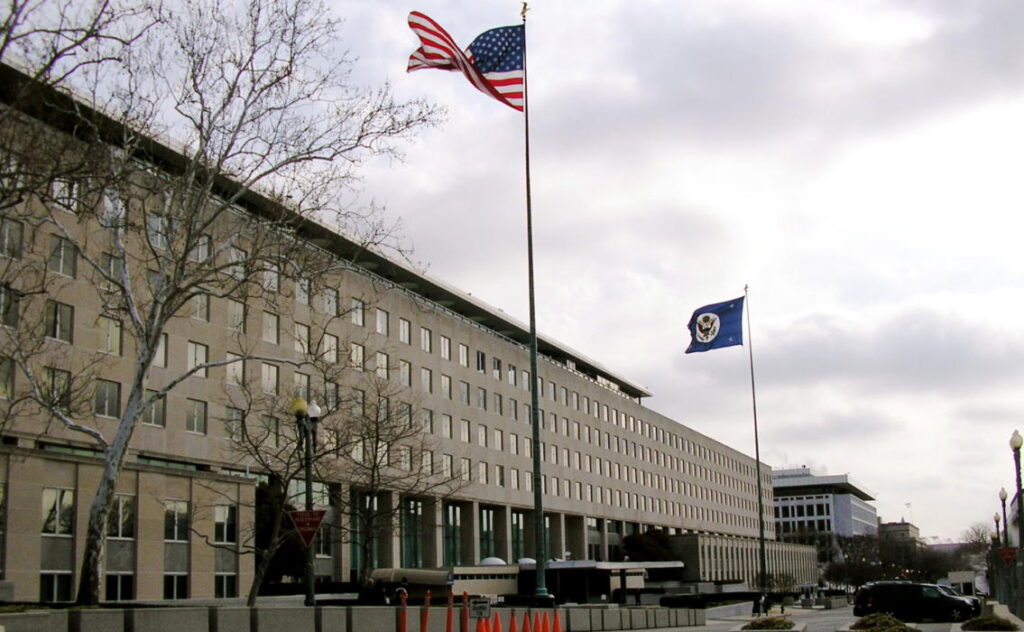- [In flagrant contradiction to Martin Longman‘s request to stop harassment of downratings, nalbar continues the bullying.
I will once again limit comments and look for timely posting of diaries. McCarthyism revived. 🙁 ]
Reassessing the Jackson-Vanik Amendment | CFR |
Introduction
The Jackson-Vanik Amendment, an addition to the U.S. Trade Act of 1974, was crafted to put pressure on the Soviet Union for human rights abuses but has become a symbol of lingering tensions in the U.S.-Russia relationship. In order to receive the benefits of normal trade relations with the United States, nonmarket economies, which originally meant Communist economies, must comply with free emigration policies. Though the United States denies normal trade relations treatment only to Cuba and North Korea, U.S. trade relations with eight former Soviet states still fall under the jurisdiction of Jackson-Vanik. These countries–Azerbaijan, Belarus, Kazakhstan, Moldova, Russia, Tajikistan, Turkmenistan, and Uzbekistan–are deemed either compliant with the emigration requirement or provisionally exempt. Yet many experts assert that the amendment is an irritant in U.S. relations with these countries, particularly Russia, and has outgrown its relevance.
Signs of the Obama administration’s interest in warming relations with the Kremlin (WashPost), as well as negotiations over Russia’s World Trade Organization (WTO) accession, have prompted a fresh round of discussion among experts about graduating Russia from the amendment to make it permanently exempt. Whether President Barack Obama can do so and how quickly, experts say, will depend on his ability to overcome long-standing congressional reluctance to make what is perceived as an undeserved concession to Russia.
Legislation that would become the Jackson-Vanik Amendment was proposed in October 1972 to prevent the Soviet Union from charging exorbitant fees to Jews trying to emigrate. Though cosponsors Sen. Henry M. Jackson (D-WA) and Rep. Charles A. Vanik (D-OH) cast the legislation as a means to put pressure on Communist countries for human rights violations, the amendment references only emigration, clearly targeting the former Soviet Union. The Soviet bloc stopped charging “education reimbursement fees” in late 1972, but the Jackson-Vanik Amendment was still included as a provision of Title IV of the Trade Act of 1974.
The legislation conditions nonmarket economies’ eligibility for receiving “most favored nation” status (now known as “normal trade relations”) and accessing particular U.S. financial facilities on compliance with a set of free-emigration requirements. To comply with the amendment, the applicable countries may not deny their citizens the right to emigrate, impose a significant tax on emigration or related documents, or otherwise monetarily punish any citizen for seeking to emigrate.
…
Jackson-Vanik’s application has diminished and changed drastically as its list of eligible countries shrinks. Blake Marshall, the former executive vice president of the U.S.-Russia Business Council, says refusing to abolish the amendment or graduate Russia has become a way for Congress to express disapproval with Russian trade, foreign policy, and human rights offenses. Russia has been officially in full cooperation with the amendment’s original intent since 1994, Marshall says, but “we have moved the goalpost.” In 2003, Sen. Charles Grassley (R-IA), then chairman of the Senate Finance Committee, which has jurisdiction over the Jackson-Vanik Amendment, told the Washington Times he would back Russia’s graduation “under the right circumstances,” but Russia’s lack of support for U.S. operations in Iraq and trade barriers on U.S. pork, beef, and poultry hurt congressional support at the time. “It seems every time we take one step forward in Congress, Russia takes two steps back,” he said.…
Some experts, like CFR Adjunct Fellow Jeffrey Mankoff, say trade, human rights, and security concerns are excuses for congressional inaction to graduate Russia from Jackson-Vanik. Mankoff says Congress has kept Russia under the amendment to assert a role in foreign policy and calls outcry over trade concerns “political theater rather than actual substance.” Peterson’s Aslund agrees that Jackson-Vanik has far more to do with political tug-of-war between Congress and the president than with trade and attributes the amendment’s continued existence to being “one of the laws with which Congress can irritate the administration.”
Further reading in the role of the U.S. preventing Russia becoming a full-fledged WTO member:
○ Russia’s Accession to the WTO and Its Implications for the United States [pdf]
More political theater from U.S. Congress:
○ Russia and Moldova Jackson-Vanik Repeal and Sergei Magnitsky Rule of Law Accountability Act of 2012
○ Failure to Adjust: How Americans Got Left Behind in the Global Economy By Edward Allen (Book)
Workings inside Russia:
○ Alexei Ulyukayev, Russia’s Minister of Economic Development, arrived in Washington for a new push to revitalize bilateral trade talks between the U.S. and Russia – Feb. 24, 2014 [days before Kiev coup]
○ Russian Economy Minister Ulyukayev charged with $2m bribe | BBC News – Nov. 2016 |
Addendum – more below the fold …
In response to recent discussion in BooMan’s front page story – A Real Look at Trump’s War on NATO.
About rearming the German state in support of the NATO alliance.
○ Deutches Kaiserreich 1871-1918
« Image – see post below »
Know your history about the Prussians and German warfare.
Population numbers before and after World War II – 70 million deaths in six years… in Europe we don’t have the space for a playground for generals. It’s perhaps time for a true Blue on Red Civil War with real guns and bullets, sponsored by the NRA.
○ German FM Steinmeier Blasts NATO ‘Saber-rattling’
○ Munchen Security Conference: Trump’s NATO policy – Article 5 and Pay as We Go
